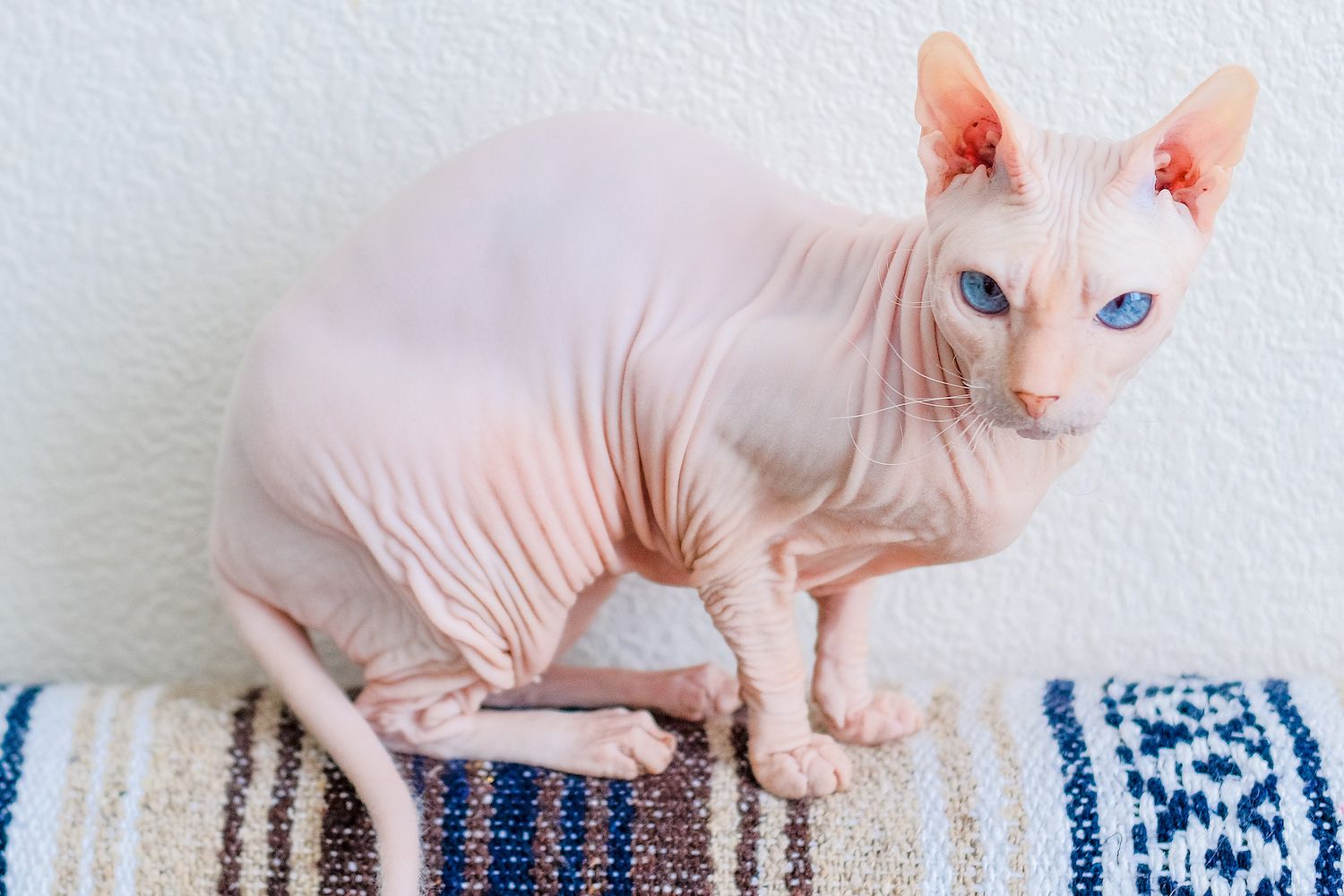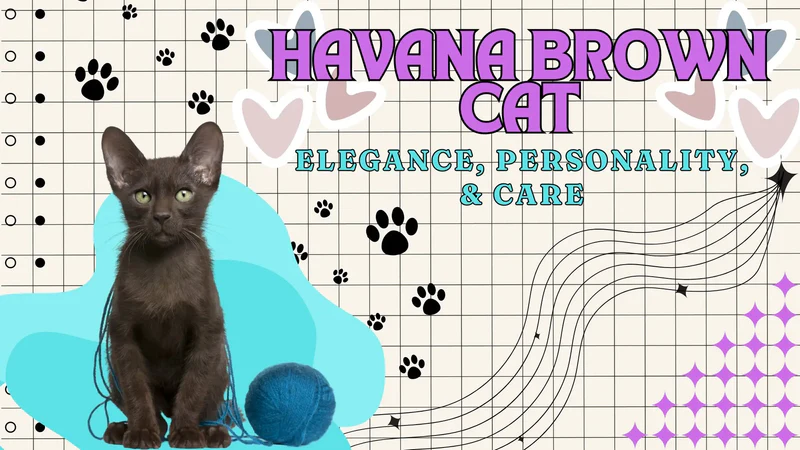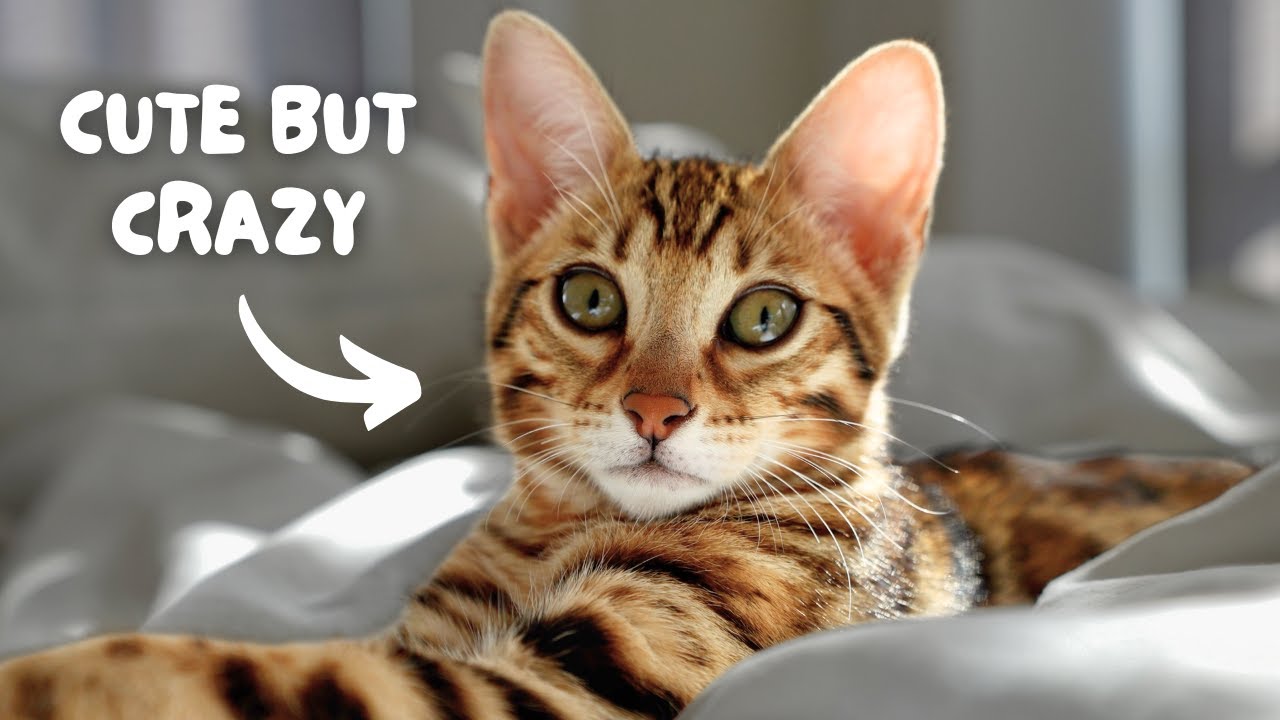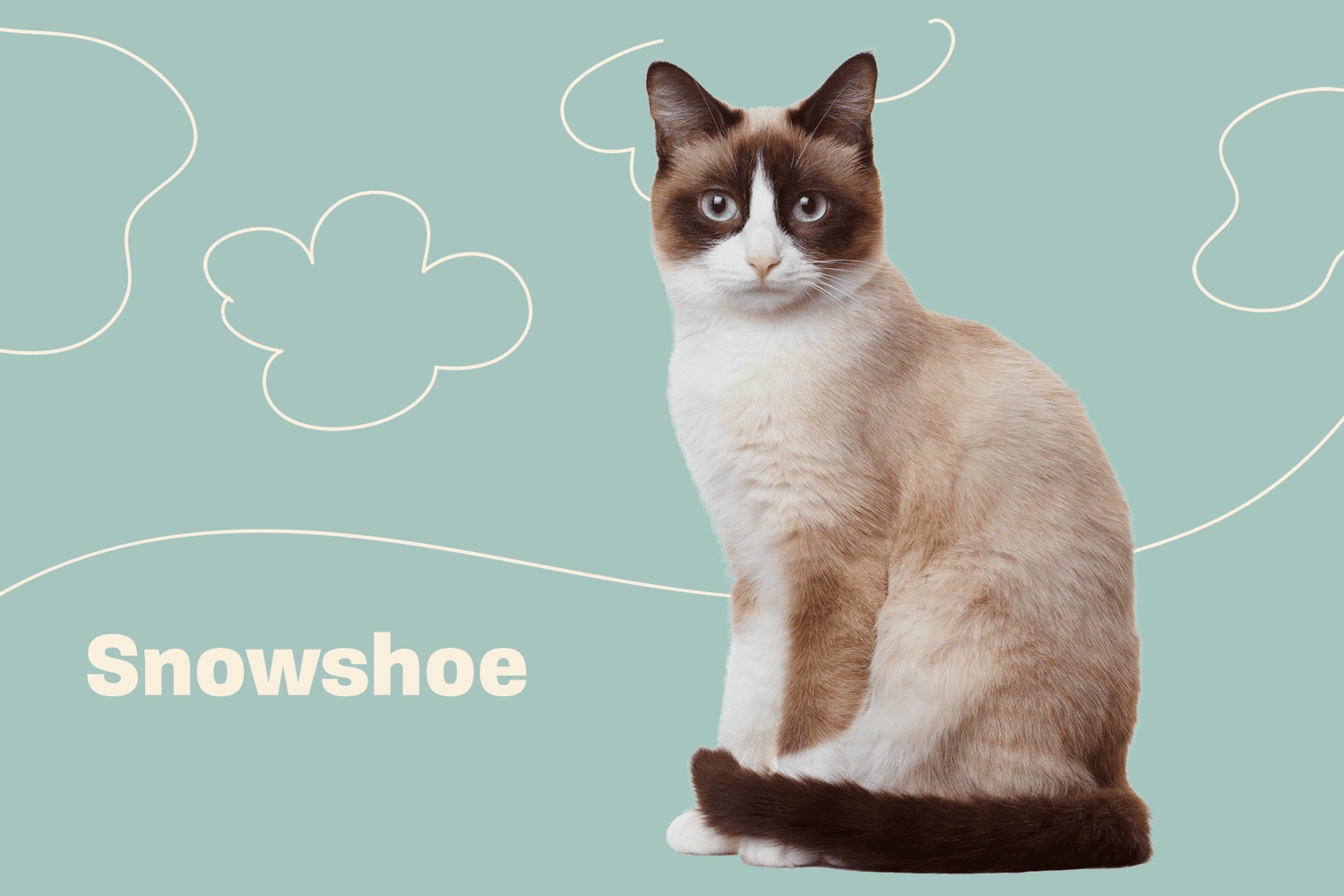Donskoy Cat: The Hairless and Charming Feline
The Donskoy cat, also known as the Russian Hairless cat, is a unique and intriguing breed that stands out for its hairless appearance, energetic personality, and affectionate nature. Originating from Russia, this breed has become increasingly popular among cat enthusiasts around the world due to its distinctive looks and playful, loving temperament. With its bare, wrinkled skin and large, expressive eyes, the Donskoy cat has a mysterious and alluring charm. This comprehensive guide will explore everything you need to know about the Donskoy cat, including its profile, characteristics, care requirements, training, and more.
Introduction to the Donskoy Cat
- Breed Name: Donskoy Cat (Russian Hairless)
- Origin: Russia
- Breed Type: Hairless (natural mutation)
- Size: Medium to large
- Weight: 3.5 to 6 kg (7.7 to 13 lbs)
- Lifespan: 12 to 15 years
- Coat Type: Hairless, with a fine peach-fuzz texture on the skin
- Eye Color: Large and expressive, typically amber, green, or blue
- Personality: Affectionate, energetic, curious, and social
- Activity Level: High
- Hypoallergenic: No (due to the presence of dander, although many find it less irritating)
- Compatibility with Other Pets: Generally good, especially when socialized from a young age
- Care Requirements: High, due to its lack of fur and special skin care needs
History of the Donskoy Cat
The Donskoy cat is a relatively new breed that originated in Russia in the early 1990s. The breed traces its roots back to a natural mutation in a stray cat named Prune, who was found in the city of Rostov-on-Don, Russia. Unlike most cats, Prune was hairless, and this unusual characteristic sparked the interest of breeders. Through selective breeding, the Donskoy cat was developed to ensure the retention of this mutation, resulting in a breed with distinctive hairless features.
Though the breed’s history is shorter compared to other cat breeds, the Donskoy cat has quickly become popular, particularly due to its social and affectionate nature. It is recognized by several cat associations, including The International Cat Association (TICA) and the Fédération Internationale Féline (FIFé).
Physical Characteristics of the Donskoy Cat
The Donskoy cat’s most notable feature is its hairless body, though it may also have some fine, soft peach-fuzz on its skin. Here are the key physical characteristics that define this breed:
- Hairless Coat: Unlike most cats, the Donskoy lacks a full coat of fur. Some may have slight fuzz or downy hair on their bodies, especially on the ears, tail, and face, but the majority of their skin is smooth and exposed. Despite its lack of fur, the Donskoy cat is not completely bald.
- Skin Texture: The skin of the Donskoy is soft, warm, and often described as feeling like soft velvet or peach fuzz. It has many wrinkles, particularly around the neck, shoulders, and stomach. The folds in the skin are one of the breed’s signature features.
- Body Type: The Donskoy is a medium to large-sized cat with a muscular, athletic build. Its body is lean and well-defined, which gives it a graceful appearance. The breed has a long, tubular body with long legs and a tapered, elegant tail.
- Face and Eyes: The Donskoy has a distinctive face with a broad, rounded skull, and large, expressive eyes that can come in a variety of colors, including green, amber, or blue. Their ears are large, pointed, and set high on their heads, contributing to their striking appearance.
- Coloring: Donskoy cats come in a variety of colors and patterns, including solid, tabby, and color-point variations. Common colors include black, blue, cream, and red. Due to their hairlessness, their skin may have a noticeable blush or color pattern, which can change over time, much like the skin of a Sphynx cat.
Personality and Temperament of the Donskoy Cat
Donskoy cats are known for their affectionate, sociable, and playful nature. Despite their distinctive appearance, they are far from aloof. Here are some key traits of their personality:
- Affectionate and Bonded to Owners: Donskoy cats are extremely affectionate and love to form strong bonds with their human companions. They often follow their owners around, seek out attention, and enjoy cuddling and being close to their people. They thrive on interaction and are not a breed that enjoys being left alone for long periods of time.
- Energetic and Playful: These cats are highly energetic and love to engage in activities and play. Donskoy cats are curious by nature and enjoy exploring their surroundings. They are often seen jumping, climbing, and exploring their environment with vigor.
- Social and Friendly: Donskoy cats are generally very social and do well in multi-pet households. They are friendly with both humans and other animals, especially when raised with them. These cats usually get along well with children, making them a great choice for families.
- Clever and Intelligent: Donskoy cats are highly intelligent and enjoy learning new tricks. They are quick learners and can be trained to do various tasks, including fetching, walking on a leash, and using the toilet. This breed’s intelligence also means they need mental stimulation, so it’s important to keep them entertained with interactive toys or puzzles.
- Talkative: While not overly vocal, the Donskoy cat is known for its expressive meow. They will often communicate with their owners through vocalizations, purring, and body language, especially when seeking attention or food.
How to Care for a Donskoy Cat
Caring for a Donskoy cat requires attention to their unique needs, particularly due to their lack of fur. Here are some important tips on how to care for a Donskoy cat:
- Skin Care and Bathing: Since Donskoy cats do not have fur to absorb oils, their skin can accumulate a buildup of oils that would typically be absorbed by their coat. Regular bathing, typically once a week, is necessary to keep their skin clean and prevent irritation. Use a gentle, hypoallergenic cat shampoo to avoid skin sensitivity.
- Sun Protection: Without fur, Donskoy cats are susceptible to sunburn, particularly if they are exposed to direct sunlight for long periods. If your Donskoy cat spends time outdoors, it is advisable to use a pet-safe sunscreen on their exposed skin.
- Temperature Control: Donskoy cats are sensitive to temperature extremes. They can get cold easily due to their lack of fur, so it’s important to keep them in a warm environment, especially during colder months. A soft bed or blanket can help them stay cozy and comfortable.
- Nail Care: Like all cats, Donskoy cats require regular nail trimming to prevent their claws from becoming too long or sharp. Make sure to check their nails regularly and trim them as needed.
- Diet and Nutrition: Providing a balanced diet with high-quality protein is essential for maintaining the health of your Donskoy cat. Since they are active and energetic, they will require plenty of nutrients to support their energy levels and overall health.
Training Your Donskoy Cat
Training a Donskoy cat can be a fun and rewarding experience, as they are intelligent and eager to please. Here are some tips for training your Donskoy:
- Positive Reinforcement: Like most cats, Donskoy cats respond best to positive reinforcement. Use treats, praise, and affection to reward good behavior. This method helps strengthen the bond between you and your cat while encouraging desired behaviors.
- Litter Box Training: Donskoy cats are typically easy to litter train, as they are clean animals. Provide a clean, easily accessible litter box, and they should use it without issue. Make sure to scoop the litter box regularly to keep it fresh.
- Leash Training: If you want your Donskoy cat to enjoy outdoor adventures, you can train them to walk on a leash. Start by getting them used to the harness indoors before gradually introducing them to outdoor walks. Be patient and keep training sessions short to avoid overwhelming them.
How to Choose a Donskoy Cat
When selecting a Donskoy cat, it’s important to choose a reputable breeder. Here are some factors to consider when choosing your new feline companion:
- Health Testing: Ensure the breeder provides health guarantees and testing for common genetic conditions. Donskoy cats are generally healthy, but like all breeds, they can be prone to certain conditions.
- Temperament: Spend time interacting with the kitten before making a decision. Ensure the kitten is social, playful, and comfortable being handled.
- Breeder Reputation: Choose a breeder with a good reputation who prioritizes the health and well-being of their cats. A responsible breeder will provide you with proper documentation and support throughout the adoption process.
Pros and Cons of Owning a Donskoy Cat
Pros:
- Affectionate and loving, great companions
- Energetic and playful, good for active households
- Intelligent and easy to train
- Good with other pets and children
- Unique and striking appearance
Cons:
- Requires regular skin care and bathing
- Sensitive to temperature changes, especially cold weather
- Can be prone to skin irritations without proper care
- High-maintenance in terms of grooming and attention
Price of a Donskoy Cat
The price of a Donskoy cat can vary widely depending on factors such as lineage, breeder reputation, and whether the cat is intended for breeding, showing, or as a pet. On average, a Donskoy kitten can cost between $1,000 and $2,500. Prices may be higher for show-quality cats or those with championship bloodlines.
Conclusion
The Donskoy cat is a fascinating breed that is known for its hairless appearance and loving personality. Despite requiring specialized care due to its lack of fur, the Donskoy is an affectionate, intelligent, and playful companion that can bring much joy to the right household. With proper care, training, and attention, a Donskoy cat can be a delightful and engaging pet for many years.




